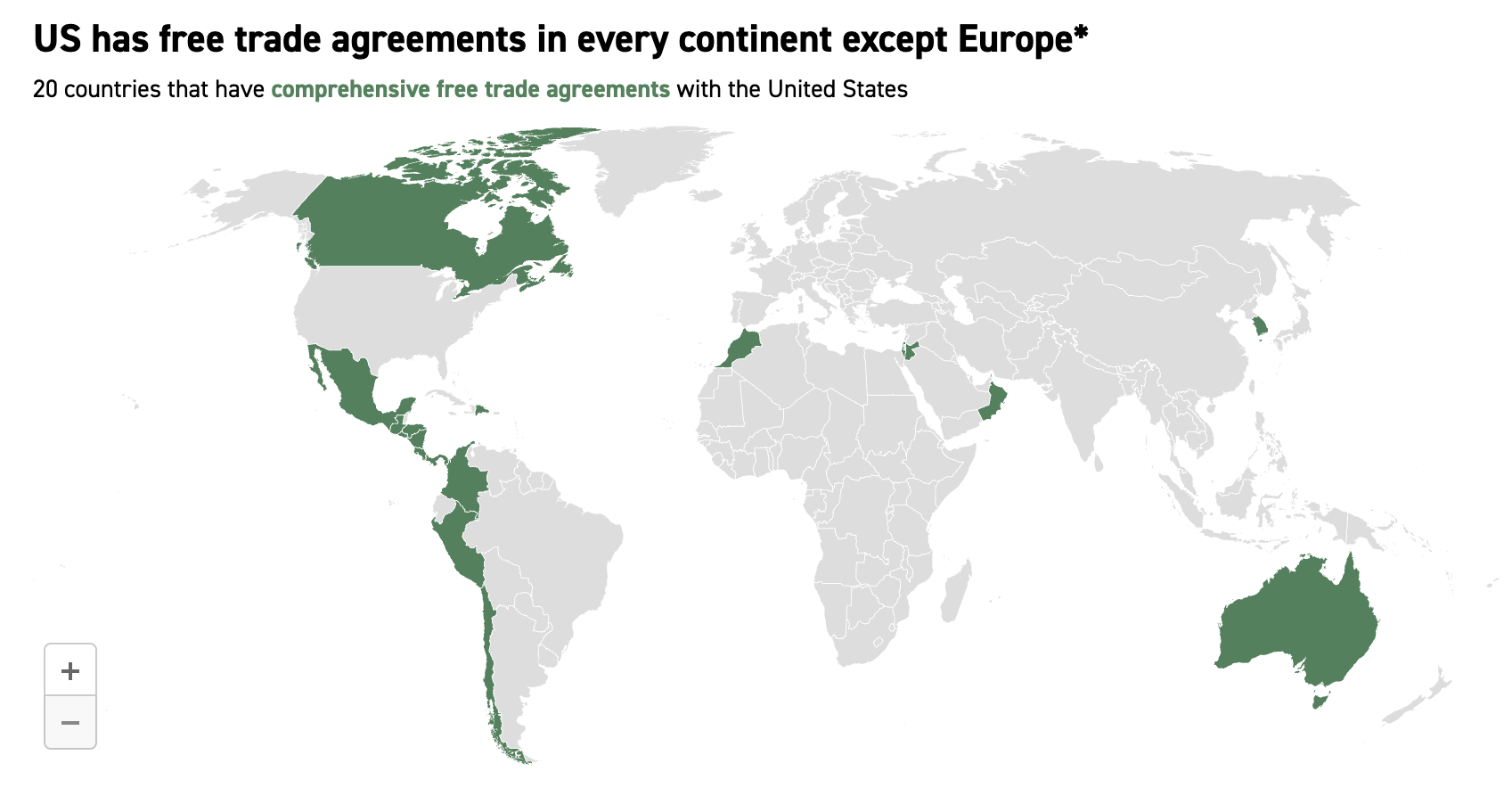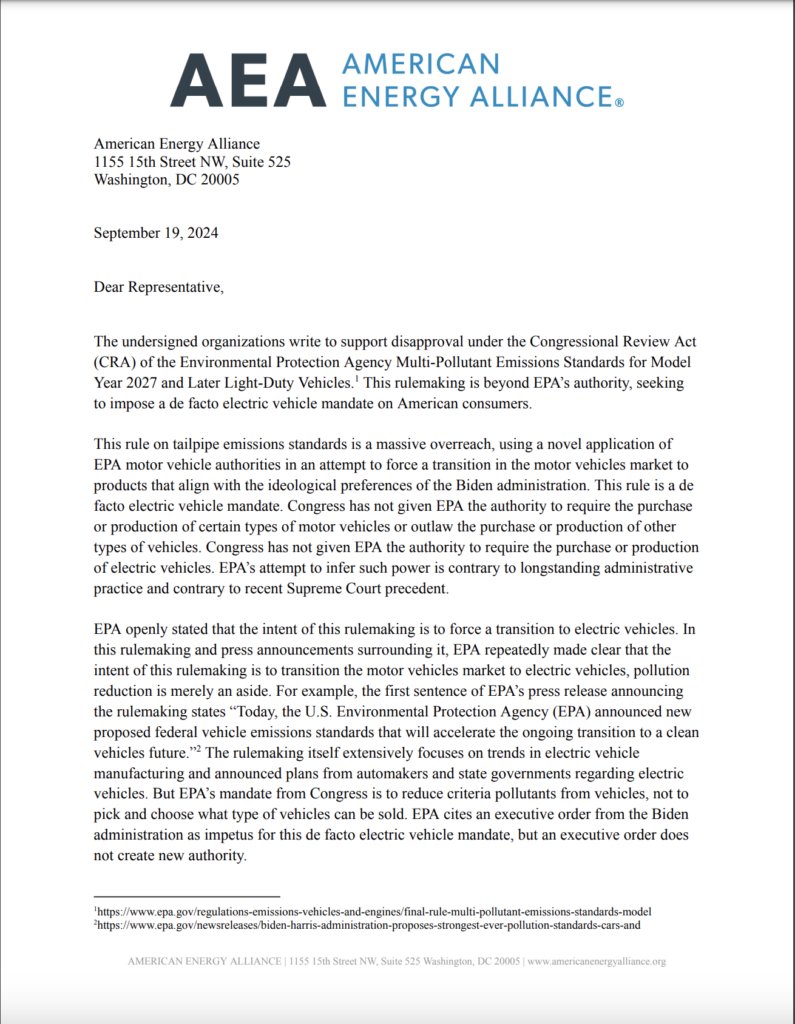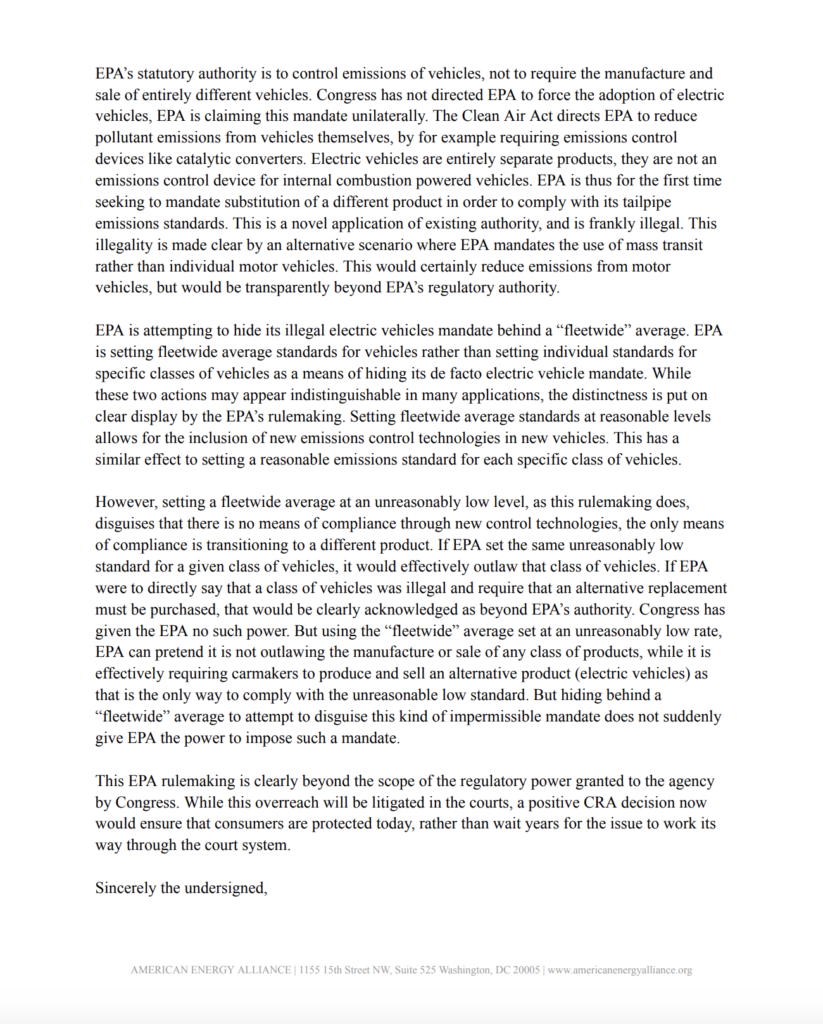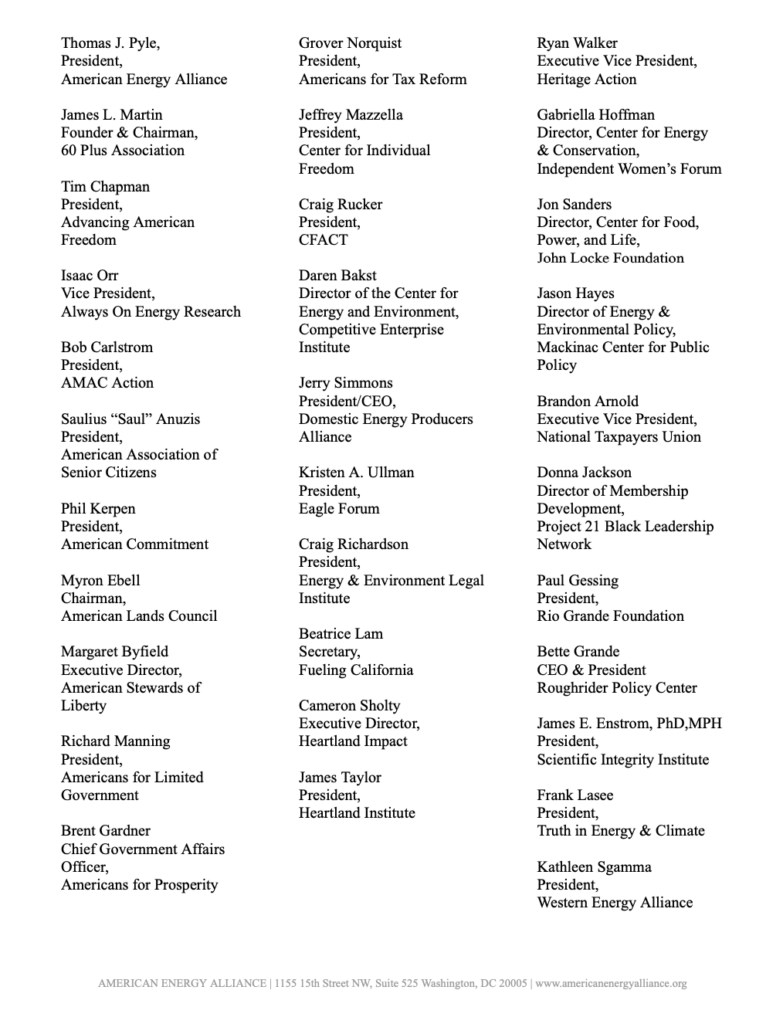The electric vehicle mandate may be running out of juice.
On September 20, House Democrats and Republicans joined forces to overturn a Biden administration rule setting tougher emissions standards for car manufacturers starting in 2027.
[…]
The American Energy Alliance, on the other hand, celebrated the vote against these standards as a victory for consumers.
“Americans deserve the freedom of choice to make their own informed decisions about their transportation options. I commend the House on their passage of this resolution today and look forward to seeing it on the Senate calendar soon,” AEA President Thomas Pyle said in a statement.
The measure will now head to the Senate for a vote.




